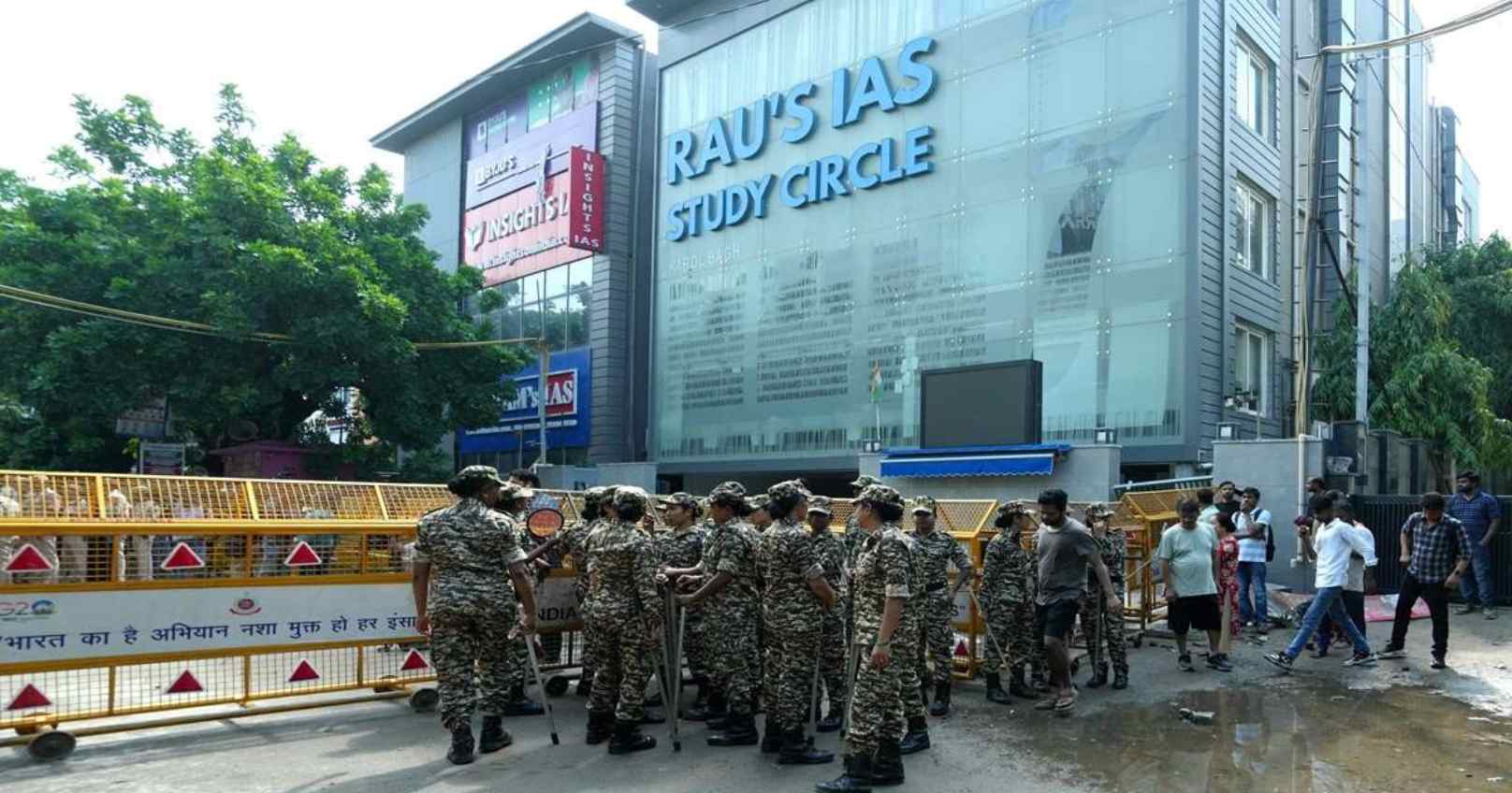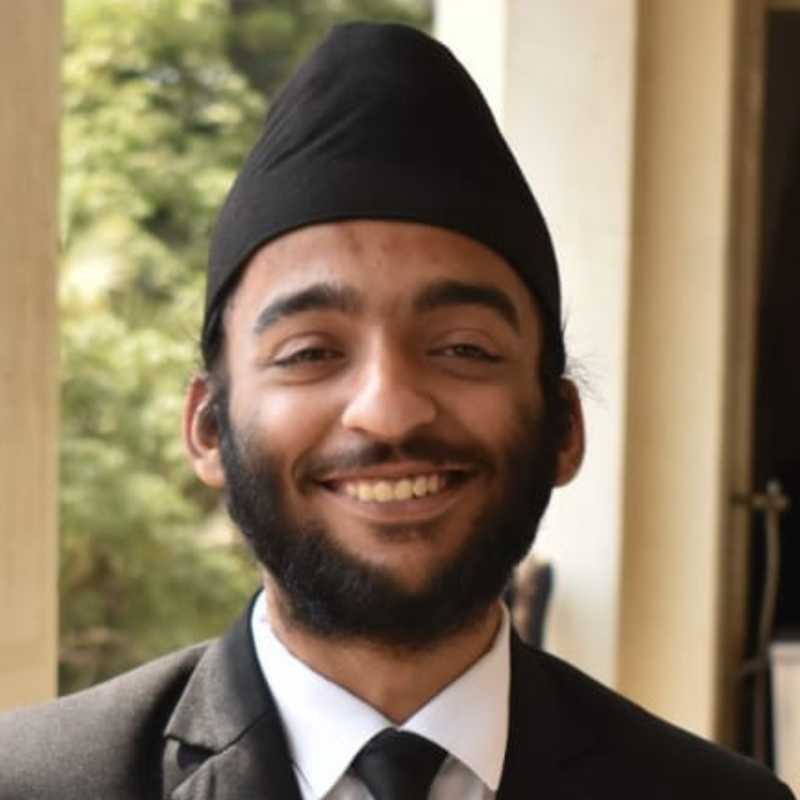The tragic demise of three UPSE aspirants continues to cast a pall over the community, yet the egregious police action against Mr. Manoj Kathuria, an SUV driver accused of navigating the inundated street where the fatal incident occurred, stands as a grievous affront to individual liberty. This indefensible act defies rationality and flagrantly contravenes all principles of common sense and legal statutes.
The Story so far….
On July 27, 2024, a grievous calamity befell three aspiring civil servants—Shreya Yadav of Uttar Pradesh, Tanya Soni of Telangana, and Navin Dalwin of Kerala—who perished following the inundation of a basement library at Rau’s IAS Study Circle in Delhi's Old Rajinder Nagar area. This tragic event, precipitated by torrential downpours, which has ignited a nationwide furore over the squalid living conditions imposed on students within Delhi’s coaching centres. The public outcry has cast a glaring spotlight on the unchecked operations of coaching mafias within the national capital and has prompted inquiries into the inexplicable inertia of the Delhi government and the Municipal Corporation of Delhi (MCD) regarding these deplorable circumstances.
This tragedy follows the earlier demise of Neelesh Rai, another UPSC aspirant, who succumbed to electrocution while navigating a waterlogged street en-route to his accommodation, poised to sit for his mains examination. Additionally, a conflagration had erupted three months prior in a hostel within Old Rajender Nagar, exacerbating the sense of pervasive negligence.
In this incident, media reports allege that ripples caused by an SUV driven by Mr. Kathuria exacerbated the inundation of Rau’s IAS Study Circle’s basement library, purportedly breaching the coaching centre's front entrance. Consequently, Mr. Kathuria faces charges including culpable homicide not amounting to murder and voluntarily causing hurt. This arrest draws parallels to Bharatendu Harishchandra’s satirical play *Andher Nagari Chaupat Raja*, where irrational culpability is pursued within an anarchic kingdom. The charges against Mr. Kathuria highlight a disturbing erosion of individual liberties under the guise of accountability.
The decision to charge Mr. Kathuria with culpable homicide not amounting to murder is patently absurd, compounded by the Magistrate's decision to remand him to 14 days of judicial custody rather than dismiss these tenuous charges and grant bail. This egregious overreach exemplifies the judiciary’s failure to safeguard citizens' liberties from arbitrary police actions. Media reports indicate that Mr. Kathuria was merely driving through a flooded road, with no evidence of malfeasance. Holding Mr. Kathuria culpable under these grave charges is as illogical as holding the Delhi Commissioner of Police accountable for not barricading the flooded street, underscoring the preposterousness of the situation.
In this incident, media reports assert that an SUV driven by Mr. Kathuria aggravated the deluge in the basement library of Rau’s IAS Study Circle, allegedly breaching the front entrance. Mr. Kathuria now faces charges, including culpable homicide not amounting to murder and voluntarily causing hurt. This arrest mirrors Bharatendu Harishchandra’s satirical play *Andher Nagari Chaupat Raja*, illustrating irrational culpability within an anarchic realm. These charges underscore a disquieting erosion of individual liberties under the veneer of accountability.
The charge of culpable homicide not amounting to murder against Mr. Kathuria is manifestly ludicrous, exacerbated by the Magistrate's decision to remand him to 14 days of judicial custody rather than dismiss these tenuous charges and grant bail. This flagrant overreach epitomises the judiciary’s dereliction in safeguarding citizens' liberties from arbitrary police actions. Media accounts merely show that Mr. Kathuria was traversing a flooded road without evidence of wrongdoing. Ascribing culpability to Mr. Kathuria under these severe charges is as illogical as holding the Delhi Commissioner of Police accountable for failing to barricade the flooded street, highlighting the absurdity of the situation.
Lies, exploitation and the stifling of young dreams by the Coaching Mafias
The systemic exploitation of UPSC aspirants in Delhi’s coaching hubs, such as Rajender Nagar, has long been a pervasive issue, recently thrust into the national spotlight by a tragic incident. Driven by their ambition to succeed in one of India’s most grueling exams, these students are ruthlessly exploited by rapacious coaching institutes and landlords, prioritising financial gain over student welfare. The recent tragedy, where three aspirants perished in the flooded basement of Rau’s IAS coaching centre, starkly reveals the dire conditions these students endure. Despite grandiose assurances from coaching giants and reputed instructors of ‘world-class’ facilities and safety, the harsh truth of their duplicity was exposed by this disaster.
Delhi’s coaching institutes operate with minimal regulatory oversight, leading to hazardous and illicit infrastructures. Many occupy poorly ventilated and often illegal basements, presenting severe health and safety risks. A Delhi Police report on the Mukherjee Nagar fire incident revealed that only 67 out of 583 institutes had fire safety certificates, underscoring profound safety deficiencies. High fees and inflated rents, particularly in Rajender Nagar, exacerbate students' financial burdens, forcing them into exploitative living conditions.
A report by AajTak’s Sudhir Chaudhary highlighted the severe exploitation of students from Uttar Pradesh, Bihar, and Madhya Pradesh, who face exorbitant rents and fees, often losing security deposits. This exploitation, reminiscent of Suryakant Tripathi ‘Nirala’s’ ‘Bhikshuk’, is perpetuated by coaching mafias, brokers, and landlords. Despite calls for rigorous investigations and systemic reforms, the negligence of authorities, such as the MCD, remains glaring, as evidenced by their delayed response following the tragedy.
"Illegal Basements: Driving India's Future into Mental Torment and Mortality"
A year prior, an immense conflagration erupted in a multi-storey edifice housing coaching centers in North West Delhi’s Mukherjee Nagar, precipitating harrowing visuals of students leaping from fenestrations to evade the inferno, thereby underscoring the woeful inadequacy of safety protocols at such establishments. Subsequently, the Delhi High Court mandated enforcement agencies to rigorously clamp down on coaching centers operating in contravention of safety regulations. In a status report, the Delhi Police apprised the court that out of the 583 coaching institutes extant in the national capital, a mere 67 possessed no-objection certificates (NOC) from the Delhi Fire Services.
The Delhi Fire Services (DFS), in its status report, elucidated that a survey of 461 coaching centers revealed a gross dereliction in the adoption of requisite fire preventive and safety measures as stipulated by the Delhi Fire Service Act and its attendant regulations. The High Court decreed that any coaching centers in the metropolis failing to adhere to the statutory requisites delineated in the Delhi Master Plan, 2021 must be shuttered forthwith.
A year after a devastating fire, a drowning incident involving students has led Kutumb to file a Public Interest Litigation (PIL) demanding an inquiry. The PIL implicates the Delhi government, Municipal Corporation of Delhi (MCD), and Delhi Development Authority (DDA), alleging pervasive corruption and gross neglect by civic authorities. On August 2, 2024, the High Court mandated a thorough Central Bureau of Investigation (CBI) probe, with the Central Vigilance Commission overseeing the investigation. The Court condemned the Delhi Police and MCD for their egregious mishandling and ordered a committee to assess Delhi’s administrative and financial dysfunctions.
According to the Completion cum Occupancy Certificate from the North Delhi Municipal Corporation (NDMC), the basement of Rau's IAS Study Circle was designated solely for parking and domestic storage. The Master Plan of Delhi 2021 restricts basement usage to three specific categories. For Rau's IAS, the basement was approved exclusively for storage, parking, and utility purposes, as per the MCD certificate, and not for use as a library.
Under the Unified Building Bylaws (UBBL) 2016 of MCD, certain professionals, such as legal practitioners and medical doctors, may use basements for their professional activities. Additionally, educational institutions like schools and coaching centres can utilise basements as study areas. However, such establishments must adhere to rigorous local regulations before occupancy. The UBBL, a comprehensive set of building bylaws, governs all construction regulations in Delhi, and permits are issued in accordance with these rules.
In the case of Rau's IAS Study Circle, the 2021 certificate from the previous North Delhi Municipal Corporation explicitly prohibited the use of the basement as a library. The building comprises four floors, one basement, a terrace, and a stilt.
Conclusion
Given the police’s notorious history of encroaching upon citizens' personal liberties, the actions of the Delhi police may not be surprising. However, the egregious lack of judicial discretion by the Learned Magistrate in denying bail and remanding Mr. Kathuria to a 14-day judicial custody is profoundly disconcerting and utterly indefensible. The lamentable state of affairs in the remand process—intended as the first constitutionally mandated safeguard against arbitrary deprivation of liberty—becomes glaringly apparent when trial courts, functioning mechanistically as mere conduits for the accused, simply dispatch individuals to incarceration without due scrutiny.
It appears that the Learned Magistrate failed even to perfunctorily examine the facts before stripping Mr. Kathuria of his personal liberty for 14 days—a grievous loss, immeasurable and irremediable, which will indelibly scar the affected individual. This circumstance inexorably leads to the conclusion that the lower judiciary requires substantial sensitization and training to judiciously deliberate before remanding any individual to custody at the behest of the police, exercising judicial authority with conscientious regard for personal liberty.
In the play Andher Nagari, the autocratic and irrational rule of King Chaupat Raja culminates in the King's demise, orchestrated by the Guru. Society similarly yearns for the advent of such a sagacious figure to rectify its course.
- Adv Simarjeet Singh Satia is a Practising Advocate at Delhi High Court and Supreme Court Of India.
- Kamlesh Singh is a Fourth Year Student at Bharati Vidyapeeth(Deemed University) New Law College Pune.








